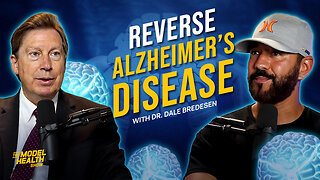Episode 2196: That’s what you get for praying - By Nancy
That’s what you get for praying.
In Frank Capra’s movie, It’s a Wonderful Life, our hero and the story’s main character, George Bailey, is seated at a local bar on Christmas Eve night, filled with hopelessness and desperation. Now on the off chance you have not seen this movie I won’t say why he feels this way but he is a very desolate, disheartened and abandoned man at this point in his life.
We hear him whisper, “Dear Father in Heaven, I’m not a praying man, but if you’re up there and you can hear me, show me the way. I’m at the end of my rope. Show me the way.”
The bartender, who is good friends with George, says, “Are you alright, Mr. Bailey?” Upon hearing his name, another man at the bar, who happens to be upset at the way George talked to his wife on the telephone, leaps up from his barstool and punches George in the mouth. At which point we hear George mumble, “That’s what I get for praying.”
Has that ever happened to you? Okay, I hope not the actual punch in the mouth, but the metaphorical punch? You prayed for one thing and seemingly received nothing, or something you didn’t want or maybe the exact opposite of what you prayed for and it felt like a punch in the gut? Did you have a George Bailey moment and think, “That’s what I get for praying?” Or maybe even think you might not be worthy of God answering your prayers? Or did you feel defeated and just want to give up? That’s what George Bailey felt - could he have thought that because he admitted to not being a praying man that God was ignoring his request?
I think that when a “non-praying” person turns to God at a time in their life when they have no one else to turn to, God recognizes faith and humility in that action. Like the father in the story of the Prodigal Son who welcomed his son back home even after squandering his inheritance and living a life of debauchery, God welcomes those “non-praying” people into His arms. They have just taken a huge leap, haven’t they? They have, as the famous phrase goes, “Let go and let God.” Now, interestingly enough, after George Bailey’s prayer went seemingly unanswered he pretty much gave up. Enter providence.
Frank Capra really captured the essence of the state of the distraught and hopeless man. (Shout out to Jimmy Stewart’s acting in this role, of course). When George meets his guardian angel in the form of Clarence we can see and feel his sense of disbelief at meeting an angel, let alone his guardian angel, but at the same time you can sense that George wants to believe. As a matter of fact, near the end of the movie after George has been given the rare gift of seeing certain things through Clarence, George declares, “Please, God, I want to live again.” Praying man or not, I think he believed all along. So in a very touching and clever way, Capra showed us how George’s prayers were, in fact, answered - but not in the way in which he expected, which leads me to providence.
I believed in providence before I even knew the word providence existed - if that makes sense. In other words, I grew up learning and believing that it’s all up to God - everything. All our lives, all that we have and all that we do is God’s hands; as St. Mother Theodore Guerin said, “Lean with all your weight on providence and you will find yourself well supported.”
God’s providence. He has our plan - regardless of what we think it will be or should be - because He knows what is best for us.
Now, I can be realistic. If the bartender had turned to George Bailey and said, “Don’t worry, George, lean on Providence and you will find yourself well supported.” George might have punched the bartender in the mouth! People don’t want quotes, they want immediate answers. But this was a literal providential wake up call for George Bailey. This “non-praying” man’s faith was asleep and God knew just how to wake it up.
Could you even imagine if God gave us everything we wanted? Everything that we asked for and prayed for? Now THAT is one scary thought. Yet God, in His infinite wisdom, gave everyone their own path, and again, in His infinite wisdom, did not give us the knowledge to know what to expect in our lives, but He gave us the gift of faith to help us venture down our chosen paths. It is up to us to accept this precious gift and use it wisely. And yet, how many times have we heard or even said to ourselves, why does God allow bad things to happen to good people? He doesn’t allow anything, He gives us what is meant for us - and it is up to us to figure out the rest. Now, I’m not saying that this is easy to do nor do I have the answers. I speak from my own experiences; I have my own questions related to bad things happening to good people. And here is just one: why did my mother have Alzheimer’s?
Here is the thing. I always used to say to my friends (way before my mother was ever diagnosed) that I would be able to handle any illness of my parents, but the one thing that I never would be able to handle would be my mother not knowing who I was. In 2008 she was diagnosed with dementia which led to Alzheimer’s. So the ONE thing I said I couldn’t handle is what happened. Now my mom was someone who knew everyone’s birthday and anniversary, she managed the checkbook to the penny, literally to the penny, did puzzles, was great at math, had a quick wit and remembered EVERYTHING I did or didn’t do - ha ha. So to witness the deterioration of her mind compounded with her inability to recognize me as her daughter was gut wrenching. When she died in 2013 it was like losing her all over again. I can tell you right now I never wanted that to be on my path. When I would pray I would ask God why, because of course I couldn’t understand why this was happening. Why would God will this? I know I must have prayed for strength because I was given that.
It was my mother’s decline over a five year period that led to my father’s illness and he actually died 87 days before my mother did. I don’t share this with you for sympathy, I share this with you, years later, as a testimony to my faith - never realizing its strength. God gave me answers to my prayers gradually, over time, in a way in which I would be able to understand.
I actually came to realize the gifts amongst the sadness and loss. I don’t know if this makes sense, but my own realization of these gifts was in fact, an answer to my prayers. I had to dig a little deeper for that, but once I did, I recognized God’s providence, God’s will.
I had my parents for 50 years while others do not. I had wonderful and loving relationships with my parents while others do not. My parents themselves had a loving relationship that they shared with my brothers and I, while others do not. My parents taught me countless life lessons and led by example while others do not. I am happy when I realize how much of my parents are a part of me while others are not. And finally, I truly believe that God gave my father the gift of letting go when he wanted to, God gave my mother the gift of dying in her own home so she would not, as she so often would tell us kids, “be a burden” to us later in life, (I can’t tell you how adamant she was about that) and I was given the supreme gift of being at my mother’s side when she died.
You might be thinking, how on earth is that an answer to your prayers? Well, it’s the power of providence. All the things that lead up to, and that follow certain moments in our lives are part of the answer.
Of course I have a lot of other questions and I continue to search for the answers through prayer and contemplation. They may not be the answers I am looking for, but they will be MY answers. I realize that my simple story may seem inconsequential to what others have endured in their lives, but I can only speak from my own experiences. Yes, there are horrible things that happen to good people and I don’t have the answers as to why - I can only attest to my own life and my own faith in God’s providence.
I have learned that it is easy to have faith when things are going well. It is when they are not that you have to dig deep. I don’t know what the future holds for me, and truthfully, as I get older it can be a little scary, but it is in God’s hands and really, what more can I ask for?
Yes, I do believe that when God closes a door, He opens a window, which leads me to my final questions for you.
Do you ever pray to God in thanksgiving for the gifts you’ve been given, for the good that happens in your life? Or do you find that you pray mostly when you want something or you need help? I have been trying to be more thankful. We are so quick to complain when things don’t go our way and yet why can’t we be just as quick to say thank you and be grateful when we are blessed with the good.
So I say, either way, pray away! And let’s try to remember that sometimes we don’t realize our prayers are being answered. Don’t assume that if things don’t go as planned that all is lost - it just wasn’t meant to be. That is our truth. That is our faith. If something was not meant to be it is because it was not God’s will. But THY WILL BE DONE. Our lives should be lived according to what God DOES will. God wants your prayers, He hears you, He knows what is best for you. As long as we believe, He will provide. And THAT’s what we get for praying.
Walts Comments
The traditional Catholic understanding of divine providence encompasses the belief that God, in His infinite wisdom and love, continuously governs and guides all creation towards its ultimate end and purpose. This understanding is deeply rooted in Scripture, Tradition, and the teachings of the Church. Here are the key aspects of this belief:
God's Sovereignty and Wisdom:
Divine providence asserts that God is all-knowing, all-powerful, and perfectly wise. He created the universe and continues to sustain and direct it. Every event in the world, whether large or small, falls under God’s sovereign plan.
God's Will and Human Freedom:
A central tenet of divine providence is that God’s will governs everything, but this does not negate human free will. Instead, God’s providence includes human actions within His divine plan, allowing humans to freely choose while still directing all things towards His ultimate purpose.
God’s Goodness and Love:
Divine providence is an expression of God’s goodness and love. He desires the ultimate good for all His creation. This belief provides comfort to the faithful, trusting that God’s plans are for their ultimate benefit, even if His ways are mysterious and sometimes difficult to understand.
The Role of Suffering and Evil:
In Catholic theology, suffering and evil are permitted by God’s providence but are not caused by Him. God can bring good out of suffering and evil, and these trials can serve as opportunities for growth in virtue, faith, and reliance on God.
Trust and Abandonment to Divine Providence:
Catholics are encouraged to trust in God’s providence, believing that He knows what is best for them. Saints and spiritual writers often emphasize the importance of abandoning oneself to God’s will, confident that He is guiding everything towards the ultimate good.
Scriptural Basis:
The understanding of divine providence is supported by numerous passages in Scripture. For example:
Matthew 6:25-34 emphasizes God’s care for creation, urging trust in His provision.
Romans 8:28 reassures believers that “all things work together for good for those who love God.”
The story of Joseph in Genesis 50:20 illustrates how God can bring good out of human evil.
Teachings of the Church Fathers and Theologians:
Early Church Fathers like St. Augustine and St. Thomas Aquinas have written extensively on divine providence. St. Thomas Aquinas, in particular, discussed it in his "Summa Theologica," where he explained that God orders all things towards their final end, and His providence does not eliminate free will but rather encompasses it.
The Catechism of the Catholic Church:
The Catechism (CCC 302-314) provides a concise summary of the doctrine, explaining that God’s providence works through the actions of creatures and includes the mystery of suffering and evil. It calls for a trusting response from the faithful, who are to cooperate with God's providential plan.
In essence, the traditional Catholic understanding of divine providence is a profound and comprehensive belief in God’s active, loving, and wise governance of the world, encompassing all events and actions within His ultimate plan for the good of His creation.
-
 1:00:12
1:00:12
2 MIKES LIVE
2 hours agoThe Mike Schwartz Show 07-02-2024
851 -
 57:58
57:58
ShawnStevenson
21 hours agoNeurologist Shows You How to Avoid Cognitive Decline | Dr. Dale Bredesen & Shawn Stevenson
1.47K3 -
 16:05
16:05
Standpoint with Gabe Groisman
1 hour agoEp. 34. Quick Point: The Debate on the Debate.
25 -
 LIVE
LIVE
Wendy Bell Radio
6 hours agoAmerica's Masterclass Gaslighters
11,964 watching -
 1:23:29
1:23:29
The Podcast of the Lotus Eaters
6 hours agoThe Podcast of the Lotus Eaters #949
26.4K24 -
![Col MacGregor Calls For Early Election! [Pete Santilli Show #4128-8AM]](https://hugh.cdn.rumble.cloud/s/s8/1/O/r/T/H/OrTHs.0kob-small-Col-MacGregor-Calls-For-Ear.jpg) 3:17:48
3:17:48
The Pete Santilli Show
3 hours agoCol MacGregor Calls For Early Election! [Pete Santilli Show #4128-8AM]
25.3K22 -
 2:10:03
2:10:03
AP4Liberty
4 hours agoBiden Turns Orange
26.7K6 -
 17:30
17:30
Digital Social Hour
3 hours agoDaymon John’s Mastermind: The Key to Breaking $5M+
13.4K -
 6:14
6:14
Sideserf Cake Studio
1 day ago $0.19 earnedI Visited My First AI Restaurant!
24.2K11 -
 11:11
11:11
Morgonn
23 hours agoShould Biden DROP OUT of the presidential race??? We are being LIED to by the GOVERNMENT!!!!
29.5K19